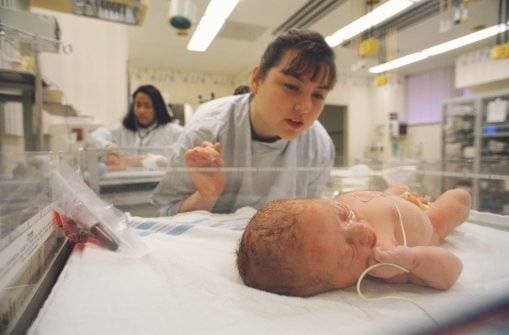There’s a “good news” story making the rounds of media outlets this past week: the teen pregnancy rate in Canada is declining faster than rates in the US, Britain and Sweden, according to a study from the Sex Information and Education Council of Canada. Using data from Statistics Canada, the Sex Information Council determined that Canada’s teen birth and abortion rates decreased by nearly 37% between 1996 and 2006. In BC, teen pregnancies decreased by 35% over the ten year period. Meanwhile the US saw a 25% drop, Britain a decrease of almost 5%, and Sweden experienced a 19% increase in its teen pregnancy rate.
This decline in the number of births to teenagers in Canada is definitely good news, but what’s not such good news is that the support needs of teen parents are actually increasing, while available resources for these vulnerable families are steadily disappearing.  In BC in 2007, there were 1466 live births to mothers under 20, according to the Provincial Vital Statistics Agency. As the teen parent population has decreased, attention — and resources — have become inadequate to address the increasingly complex risk factors of this smaller yet more vulnerable group of families. In BC, targeted services for Aboriginal young parents are almost non-existent although it is the one segment of the population where the teen birthrate continues to climb.
There are currently 41 Young Parent Programs in BC providing childcare, life skills education, and parenting education and support while young mothers finish their high school educations or upgrade their skills. According to a report commissioned by the BC Council for Families in 2004, “The support needs of young parents, particularly the younger ones, are often so varied and intense that a great deal of sustained effort is needed simply to maintain a minimum level of stability in their lives. Support becomes crisis management.”
Yet as recently as April 9 of this year, the Times Colonist reported that two Vancouver Island daycares offering services to young parents will likely shut due to cuts to their provincial funding. “While the reduction may affect the extent to which they can provide enhanced supports — such as parenting skills — this decision should not impact the agency’s ability to deliver childcare services because they are receiving the same level of funding as any other provider,” the ministry said in a prepared statement.
~~~~~~~~~~~~~~~~~~~~~~~~~~~~~~~~~~~~~~~~~~~~~~~~~~~~~~~~~~~~~~~

